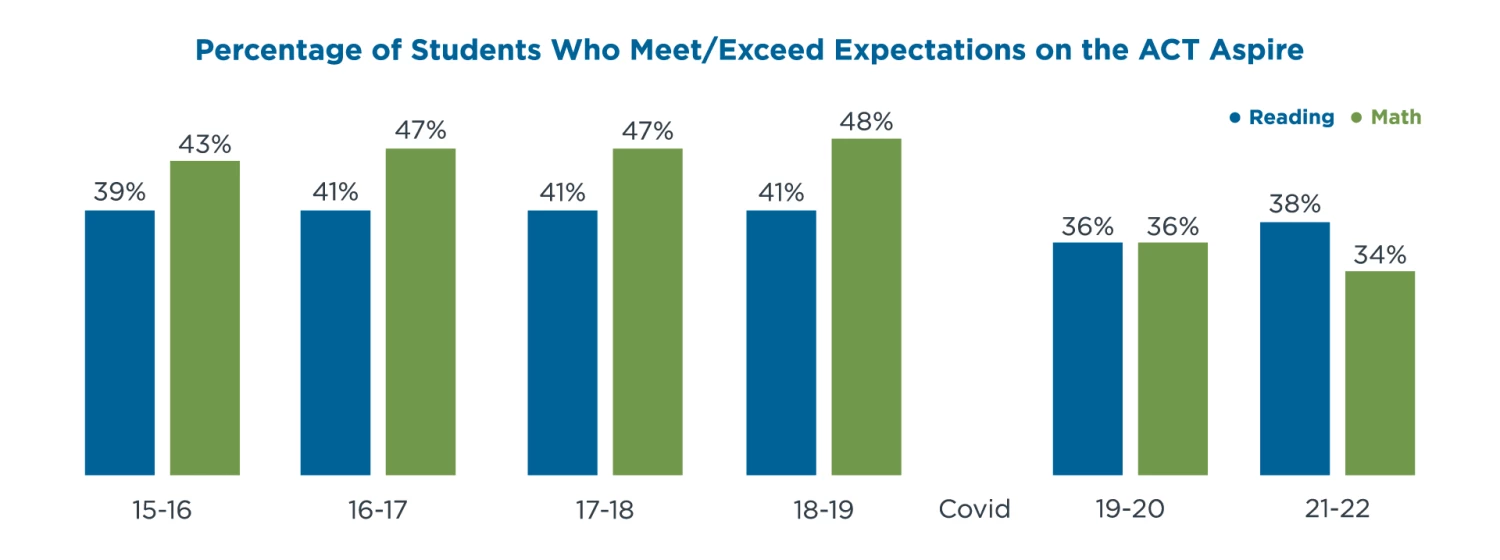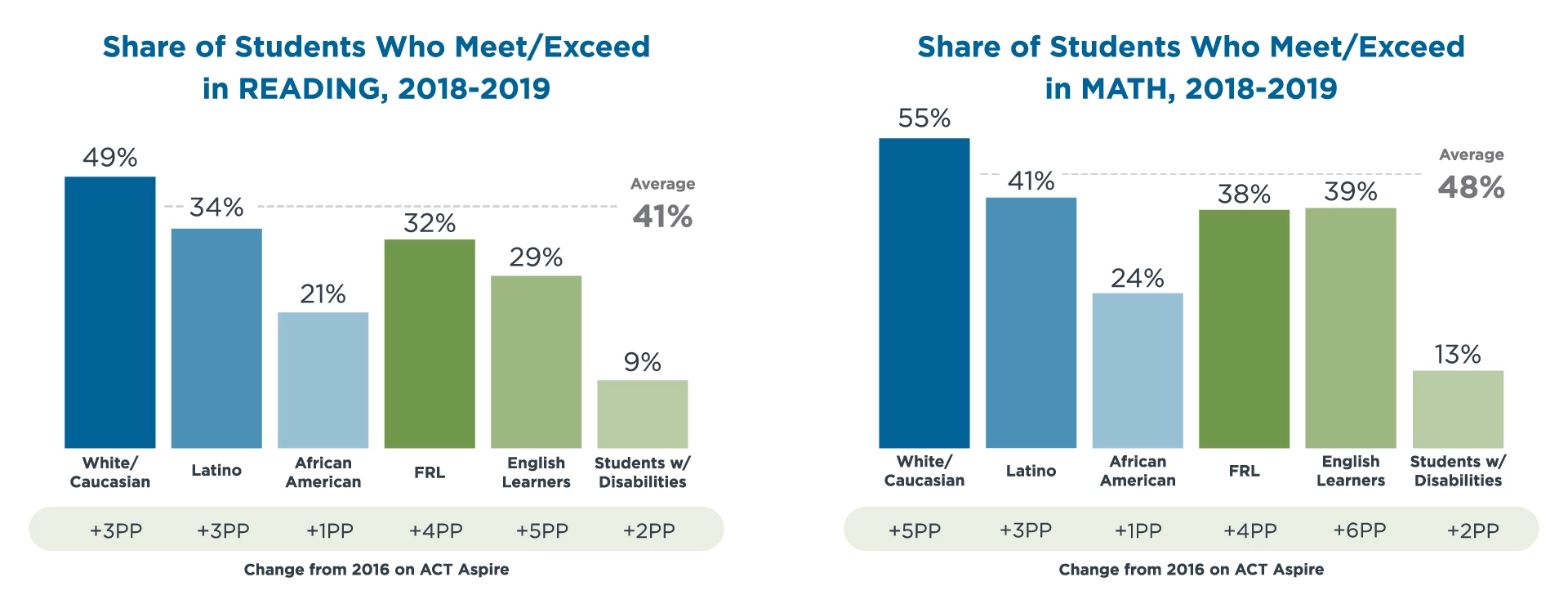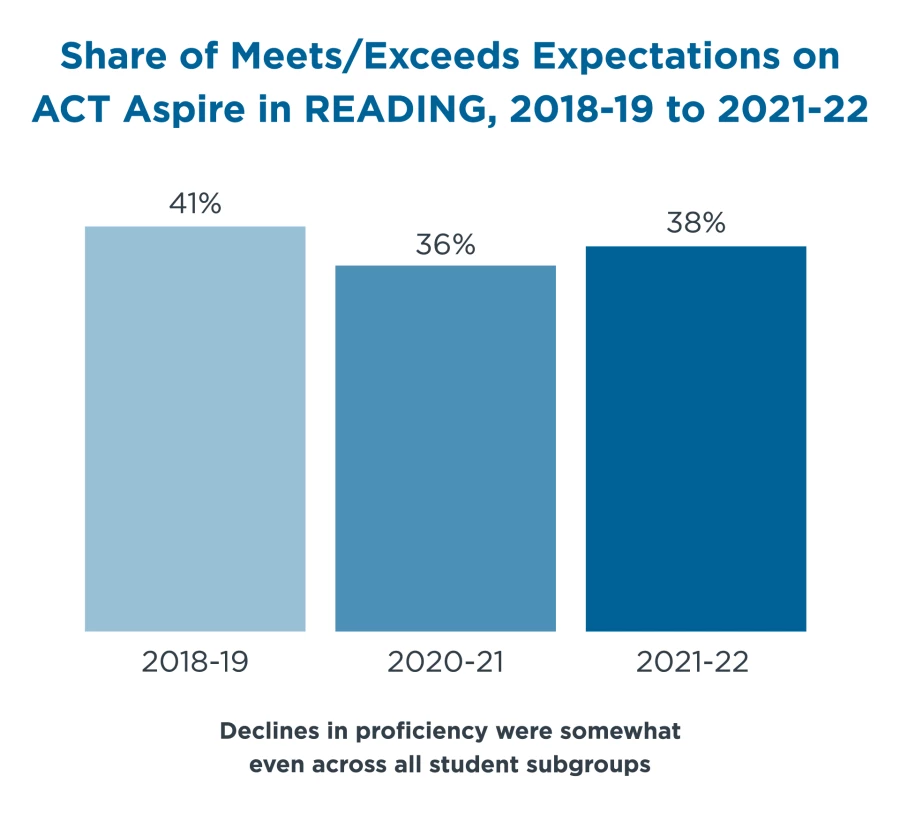From 2015 to 2018, Arkansas did begin to show slight improvements in achievement in reading and math as a state. However, the COVID pandemic disruptions halted and erased that progress.

Overall, before COVID, student academic outcomes were severely lagging, with persistent achievement gaps for certain student groups and certain regions of the state.
There were significantly lower rates of proficiency on the state’s assessments for students of color, English Learner students, economically disadvantaged students, and students with disabilities.

Student academic outcomes worsened amid COVID disruptions.
From 2018-19 to 2020-21, the state saw uniform declines in student proficiency rates across all student groups.
Student performance rebounded in 2021-22, but has not fully recovered.
ACT Aspire data for the 2021-22 school year shows that student academic achievement rebounded slightly after pandemic disruptions, but have not yet reached pre-pandemic performance and remains far lower than what we hope for in the state.
Arkansas’s response to COVID.
Stakeholders responded positively regarding the state’s swift response to the pandemic, including initially moving to remote instruction, quickly returning to in-person options for students, and the tremendous commitment and perseverance of educators. During pandemic disruptions, research showed that students who participated in in-person instruction across the state fared better on student achievement metrics than their peers who remained remote or hybrid. Arkansas had the second-highest incidence of in-person learning in the country during the 2020-21 school year, following closely behind Wyoming.
